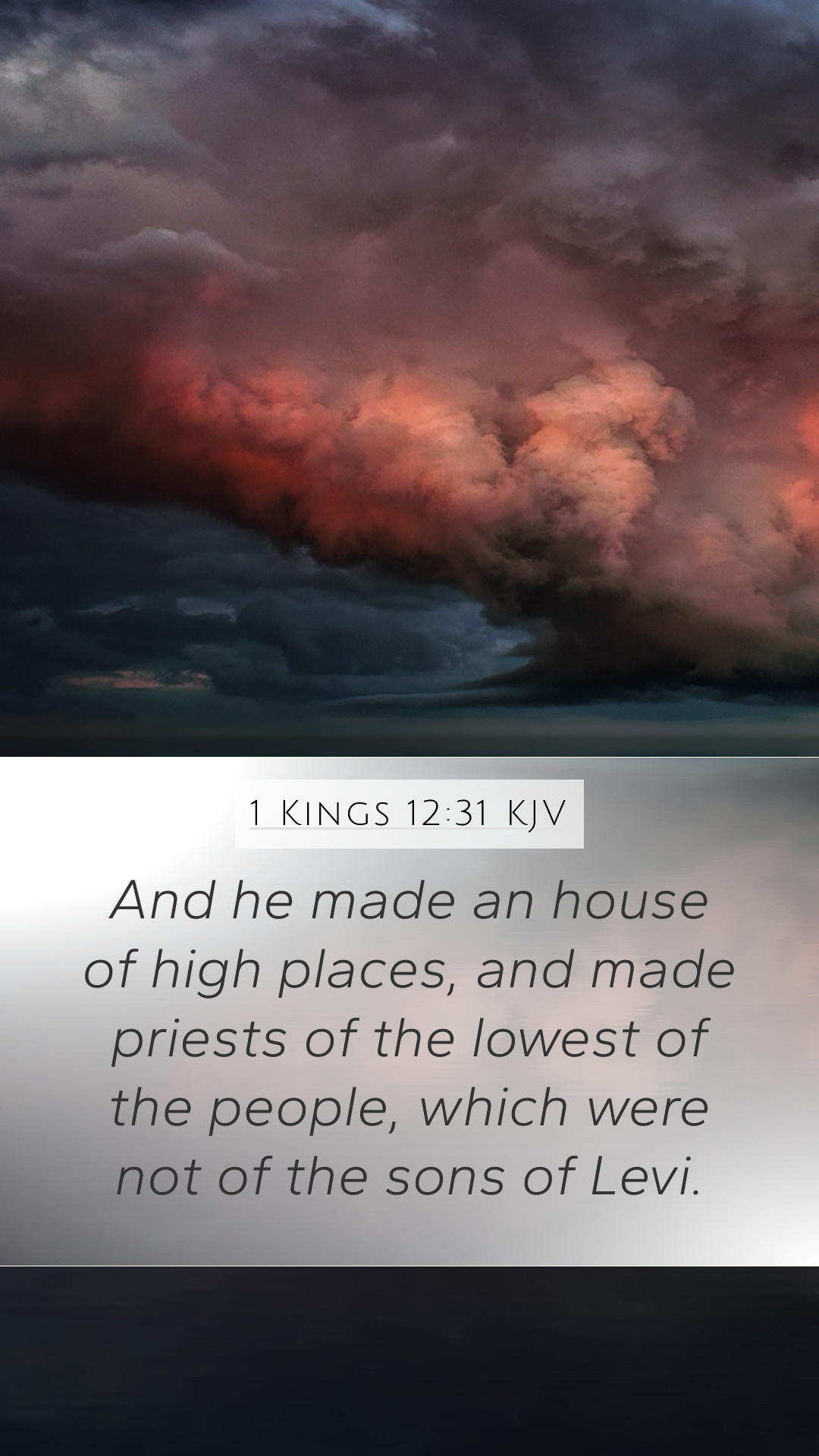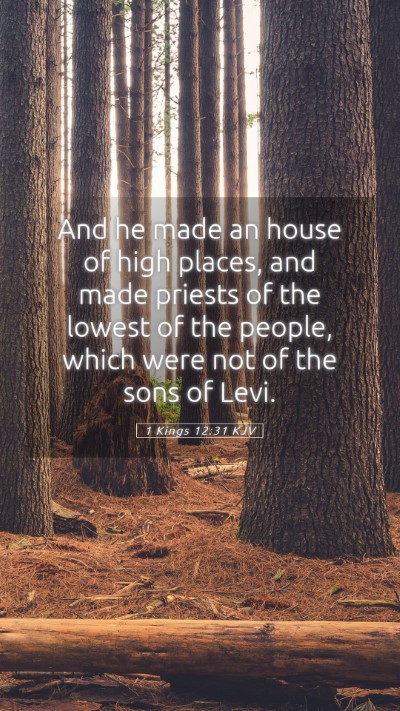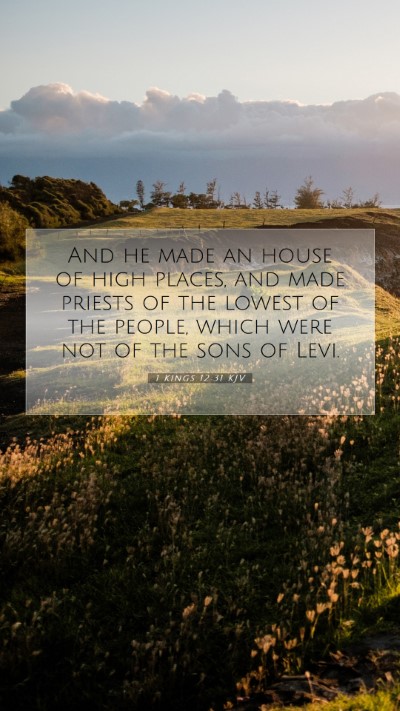Bible Verse Commentary on 1 Kings 12:31
Verse Text: "And he made an house of high places, and made priests of the lowest of the people, which were not of the sons of Levi." (1 Kings 12:31)
This passage occurs in the context of the division of the kingdom of Israel after the reign of Solomon. Jeroboam, having ascended to power, established his own form of worship that was separate from the temple in Jerusalem, leading to significant theological and social implications.
Understanding the Context
The events leading up to this verse are crucial for understanding its meaning. The kingdom was divided between Jeroboam in the north and Rehoboam in the south. Jeroboam feared that if his subjects went to Jerusalem to worship, they might reunite with Rehoboam and reject his rule (1 Kings 12:27). Thus, he sought ways to establish an alternative worship system.
Commentary Insights
- Matthew Henry: Henry explains that Jeroboam's actions were largely motivated by fear and political pragmatism rather than true devotion. This led to a corruption of worship, emphasizing the danger of altering divine ordinances for personal gain.
- Albert Barnes: Barnes notes that Jeroboam's establishment of high places was a direct violation of God's command regarding proper worship. He underscores the significance of a chosen priesthood and the implications of appointing non-Levites as priests.
- Adam Clarke: Clarke highlights the sociopolitical factors influencing Jeroboam's decisions. He remarks on the consequences of choosing priests from the lowest ranks, indicating a lowering of the standard in matters of true worship, which further leads to spiritual decay in the nation.
Theological Implications
The verse has various theological implications as it discusses the nature of divine worship. The act of making high places and appointing priests outside of the Levitical order signifies a departure from God's ordained way of worship and leadership.
Key Themes
- Alternate Worship Practices: Jeroboam's establishment of high places was an attempt to create a more convenient form of worship that ultimately misled the people of Israel.
- Consequences of Political Decisions: The decisions made by rulers can dramatically affect the spiritual lives of a nation, a theme echoed throughout Scripture.
- Faithfulness to God's Command: The importance of adhering to God's guidelines when it comes to worship and priesthood is paramount throughout the biblical narrative.
Cross References
- Deuteronomy 12:2-4: God's commands regarding the destruction of high places.
- 1 Kings 12:28-30: Jeroboam's rationale for creating new worship sites.
- 2 Chronicles 11:14-15: The consequences of the division of the kingdom and the establishment of false worship.
Applications for Today
The passage offers substantial insights for Bible study groups and online Bible study sessions. It serves as a case study in understanding the importance of adhering to scriptural guidelines in worship and community life. Additionally, it provides lessons on the dangers of manipulating religious practices for political or personal advantage.
Relevance in Daily Life
In applying the meaning of this verse to daily life, it challenges believers to examine their own practices of worship and ensure that they align with biblical teachings. It prompts a reflection on the leadership instituted within their faith communities and the importance of spiritual integrity.
Conclusion
1 Kings 12:31 serves as a sobering reminder of the consequences that accompany the departure from God's prescribed way of worship. It speaks to the heart of what it means to lead a community faithfully and the importance of maintaining the purity of worship in accordance with God's commands. As believers engage with this scripture, they are encouraged to dig deeper into understanding Scripture through reliable commentary and scholarly resources, fostering a more profound Bible study experience.


